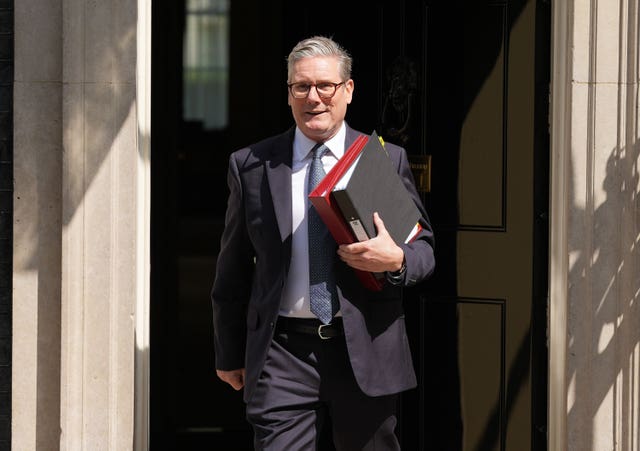The Chancellor could officially delay some major capital projects on Monday, when she is expected to tell Parliament that the Conservatives left Labour with a dire spending inheritance, including a £20 billion black hole in the accounts.
Rachel Reeves could delay a string of key hospital and road schemes she will argue are “unfunded with unfeasible timelines” to plug the shortfall, according to the Financial Times.
Road projects with cost estimates driven up by inflation and the Tories’ pledge to build or expand 40 hospitals could be postponed, the newspaper reported.
This could include the Lower Thames Crossing, a proposed road project which would connect the M25 in Essex with the M2 and A2 in Kent via a new tunnel under the Thames estuary.
A decision on the planning application for the project was delayed because of the General Election.
The Chancellor is also expected to approve above-inflation pay rises for millions of public sector workers in response to the recommendations of independent pay review bodies.
Teachers and some 1.3 million NHS staff could be in line for a 5.5% pay boost, which could cost about £3.5 billion more than had been budgeted for.
Economists believe this could rise to about £10 billion if other pay review bodies give similar advice on workforces such as police and prisons officers and doctors and dentists.
Prime Minister Sir Keir Starmer has previously acknowledged there would be a cost if failing to follow the recommendations of the pay review bodies led to a fresh wave of industrial disputes in the public services.

Labour did not deny reports that Ms Reeves could make the same argument on Monday as she signs off the pay increases despite the shortfall in Government funding plans.
The findings of a Treasury spending audit she will detail will reveal “the true scale of the damage the Conservatives have done to the public finances”, a Labour source said.
An early assessment has reportedly found a nearly £20 billion annual gap between revenues and funding commitments.
Public sector pay rises well above the 3% expected by the Treasury will put extra pressure on spending under Ms Reeves’ self-imposed fiscal rules, which include having debt falling as a share of gross domestic product in five years’ time.
Extending the 5.5% pay boost – which is above inflation at 2% – to the entire public sector could cost some £10 billion a year, according to the influential Institute for Fiscal Studies (IFS).
As this cost has not been fully budgeted for in current plans, the cash would have to be raised through existing fiscal headroom, tweaking fiscal rules or tax increases.
Any tax hikes to meet those costs would not be expected before the autumn budget, the date of which Ms Reeves is also set to announce on Monday.
Labour has ruled out lifting income tax, VAT, national insurance and corporation tax, potentially leaving changes to pensions relief and capital gains and inheritance levies on the table.
The Labour Government will not “duck difficult decisions” in its budget, Health Secretary Wes Streeting said on Friday.
He told Times Radio: “What I think we have found shocking is the state of the public finances in the year that we’ve inherited and that means tough choices… as the Chancellor will continue to show iron discipline, and she will have the full support of the entire Cabinet.
“Because these aren’t just tough choices for the Chancellor, these are tough choices for all of us and we’re determined to meet that challenge, to be honest with people, to not duck the difficult decisions and to make sure that we make the right choices now that set Britain up for the longer-term success that we need.”
Rishi Sunak’s Tory government was plagued by strike action over years of declining wages for public sector workers.
While most of the unions eventually struck pay deals with ministers, Mr Streeting is negotiating with junior doctors in a bid to resolve their long-running pay dispute.
The Labour source said: “On Monday the British public are finally going to see the true scale of the damage the Conservatives have done to the public finances.
“They spent taxpayers’ money like no tomorrow because they knew someone else would have to pick up the bill.
“It now falls to Labour to fix the foundations of our economy and that work has already begun.”
Ms Reeves could point to the soaring spending forecasted to accommodate asylum seekers in hotels, which – at around £10 billion a year – is more than three times previously thought, The Telegraph reported.
IFS director Paul Johnson said Labour “knew to a large degree how bad things are in terms of the public finances” before going into government.
“We and many others have made it very clear that it was going to be very hard to avoid cuts over the next few years given the proposals made by the previous government.
“I’ve no doubt they have discovered some specific issues, and particularly about how tough things are this year or immediately, which wouldn’t have been quite so evident from the public pronouncements.
“So my guess is that that’s what they’re going to focus on on Monday.”

